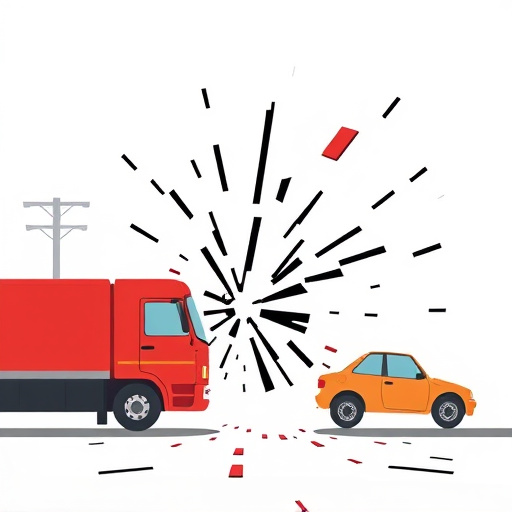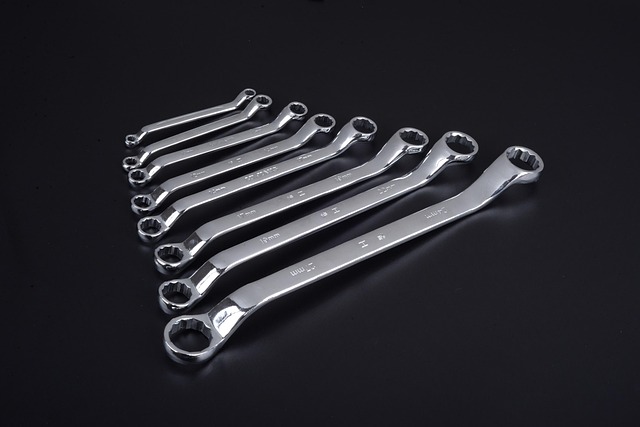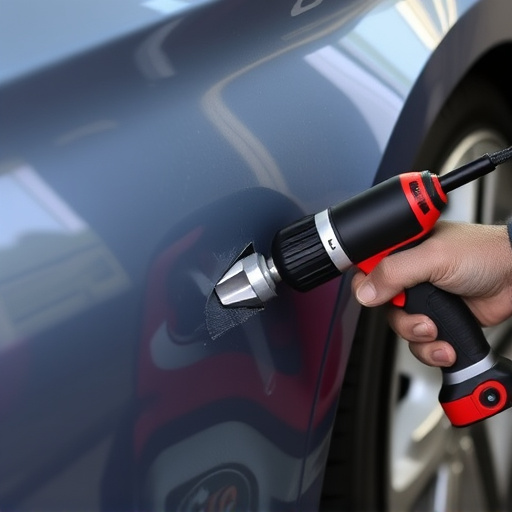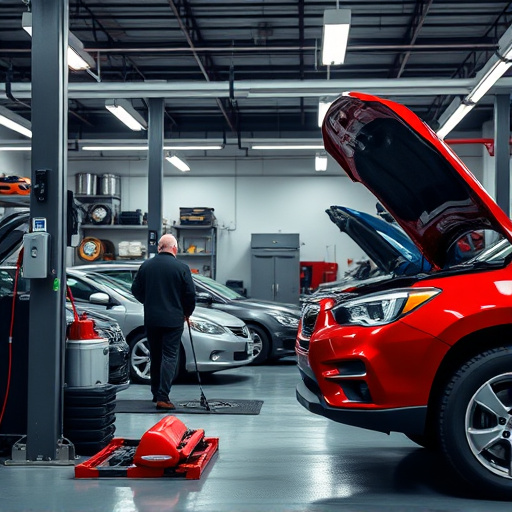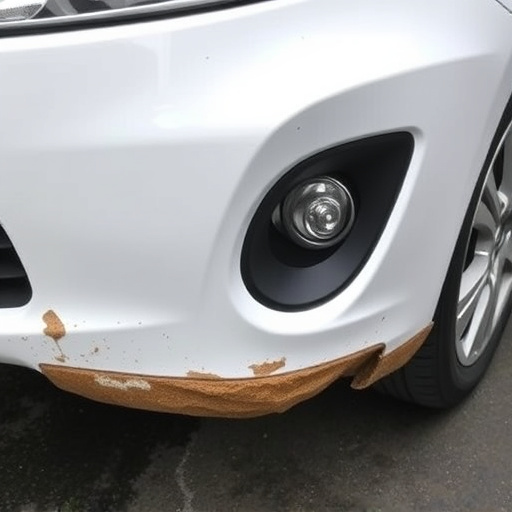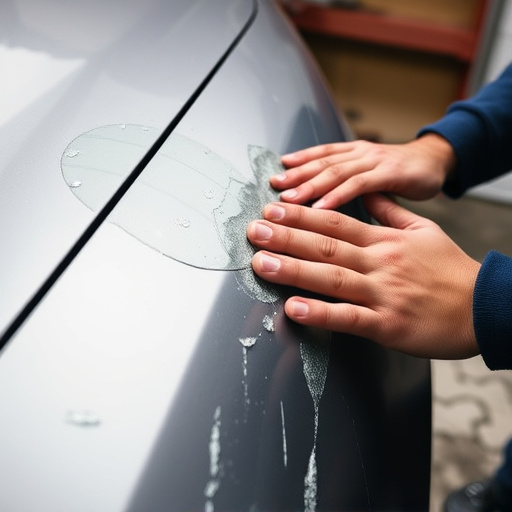Using dent repair tools at home offers advantages like convenience and cost savings for minor dents, with kits designed for beginners and specific vehicle finishes. However, DIY methods lack professional precision and expertise, potentially causing further damage. Serious dents require specialized equipment and skilled professionals for safe removal and long-term maintenance. Assess skills, damage extent, and needs before attempting DIY dent repair.
Considering repairing car dents at home? You’re not alone. Dent repair tools are gaining popularity, offering a seemingly convenient and cost-effective solution. But are they right for you? This article breaks down the pros and cons of DIY dent repairs, exploring the advantages of home dent repair tools, potential risks, and how to make an informed decision before tackling those dings yourself.
- Advantages of Home Dent Repair Tools
- Disadvantages and Potential Risks
- Making an Informed Decision for DIY Repair
Advantages of Home Dent Repair Tools
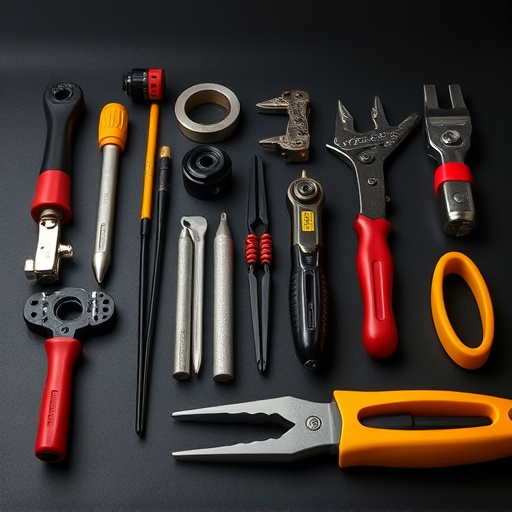
Using dent repair tools at home offers several advantages for those looking to fix small dents and dings in their vehicles. One of the primary benefits is convenience; individuals can perform repairs in the comfort of their garages or driveways, eliminating the need to visit a professional collision center. This saves time and often results in significant cost savings compared to traditional collision repair services. Many home dent repair tools are designed with ease-of-use in mind, featuring simple step-by-step instructions and intuitive applications, making them accessible even for those without prior automotive repair experience.
Additionally, at-home repair kits often include a variety of tools tailored to different types of dents and vehicle surfaces, including car paint repair tools specifically designed for minor scratches and small chips. These kits may also come with templates or guides that ensure precise results, minimizing the risk of further damage. For instance, a set dedicated to Mercedes-Benz repair could include specialized tools and tutorials tailored to the brand’s unique finishes, allowing owners to maintain their vehicle’s original appearance while addressing dents efficiently.
Disadvantages and Potential Risks
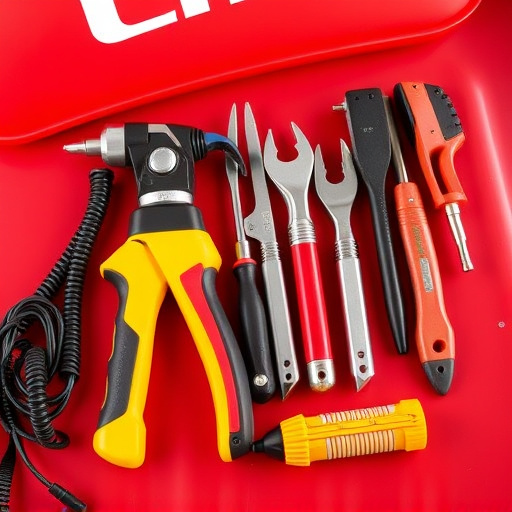
While using dent repair tools at home can be appealing for cost savings and convenience, there are several disadvantages and potential risks to consider. One major downside is that DIY methods often lack the precision and power of professional equipment, leading to subpar results. Even with high-quality tools, it’s challenging to match the smoothness and evenness of a pro’s work, especially on deeper or more complex dents.
Additionally, dent repair requires specialized knowledge and safety precautions. Incorrect application of these tools can result in further damage, paint issues, and even structural complications. Moreover, there’s the risk of injury if not handled properly. While some minor dents might be manageable for car owners comfortable with DIY projects, more serious cases are best left to experienced auto body services or collision repair professionals who have the necessary skills and tools to ensure safe and effective car dent removal.
Making an Informed Decision for DIY Repair
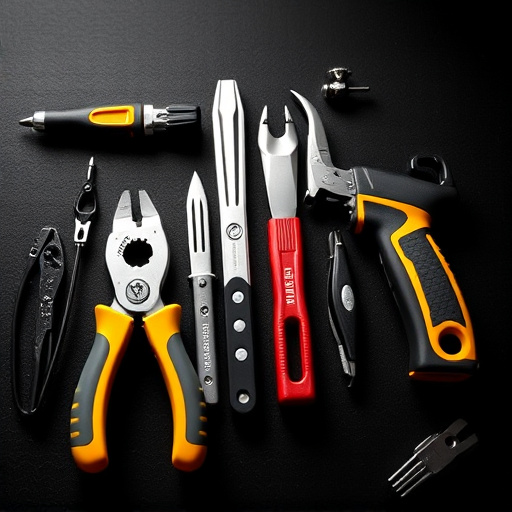
Before tackling any DIY dent repair project, it’s crucial to weigh the benefits and drawbacks of using dent repair tools at home. While the idea of saving money by performing your own fender repair or car dent fix may be appealing, not everyone has the skills, tools, or time for such a task. For minor dents and dings, utilizing dent repair kits can be an effective solution without having to visit a collision repair shop. These at-home tools are designed to pull out dents, restore your vehicle’s original shape, and save you the expense of professional services.
However, more severe damages may require specialized equipment and knowledge that standard dent repair tools might not offer. A trip to a car repair shop could be necessary for complex fender repairs or paintless dent removal, ensuring a flawless finish. Remember, attempting extensive repairs without proper training can lead to further damage, leaving you with bigger bills down the line. Making an informed decision depends on assessing your skills, the extent of the damage, and considering whether investing in dent repair tools will provide long-term value for your automotive maintenance needs.
When considering whether to use dent repair tools at home, it’s crucial to balance the advantages like cost-effectiveness and convenience against potential risks such as surface damage or unprofessional results. Making an informed decision involves assessing your skill level, the extent of the dent, and comparing DIY options with professional services. Ultimately, while dent repair tools can be a game-changer for minor dents, they may not be suitable for all scenarios, and seeking professional help ensures optimal restoration outcomes.
